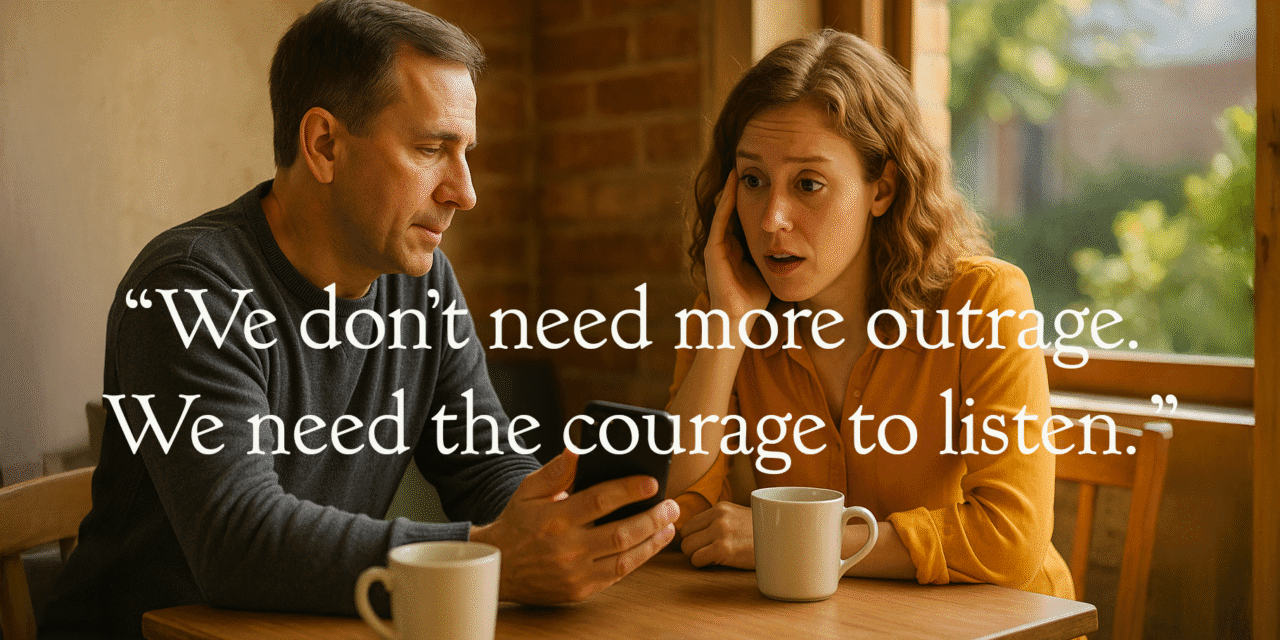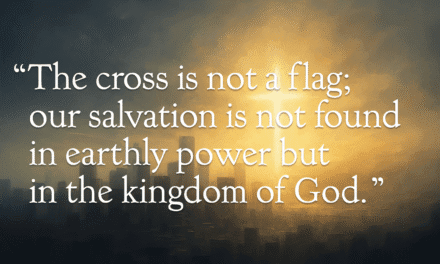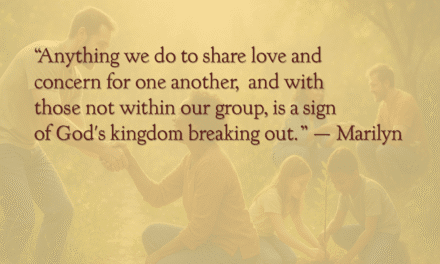In the days following the death of Charlie Kirk, the divide in our culture has once again been laid bare. Some mourn a man they saw as a Christian speaker, a loving father, and a voice of conviction. Others breathe a sigh of relief, recalling his incendiary rhetoric, his vilification of marginalized groups, and his unapologetic embrace of extremism.
Can both things be true? Can someone be loved by family and friends and also leave behind a legacy that caused deep harm?
A widely shared post describes a powerful moment between two friends. One had only ever seen Kirk’s motivational content, full of purpose and positivity. The other had only seen his most divisive and inflammatory moments. Each was shocked by what the other shared. But instead of arguing, they chose to listen. In doing so, they walked away with greater understanding, even if not complete agreement.
This moment invites us to reflect. It is not a time to react out of emotion or tribal loyalty. It is a time to ask important questions.
What Does It Mean to See the Whole Person?
The Apostle Paul reminds us that we now see through a glass darkly (1 Corinthians 13:12). In other words, none of us sees the full picture. We are influenced by what our news feeds show us, what our communities accept, and what our personal biases allow.
Charlie Kirk, like every person, was made in the image of God. That image may have been marred by sin, but it was not erased. We must be careful not to dehumanize those we disagree with, even if we are appalled by their actions or words. At the same time, we must not allow a polished public persona to excuse consistent patterns of harm, exclusion, or contempt for others.
To love someone as Christ loves does not mean excusing sin or injustice. It means holding grace and truth together. That is difficult work. But it is also sacred work.
How Do We Discern Truth in a Divided World?
Scripture tells us in 1 John 4:1, “Do not believe every spirit, but test the spirits to see whether they are from God.” The same principle applies to cultural voices.
When someone claims to speak for God, yet calls for violence, mocks the vulnerable, or fans the flames of division, we must ask if their words reflect the heart of Christ. When Christian language is used to promote nationalism or dehumanize others, we must remember that even the devil quoted Scripture in his attempt to tempt Jesus.
Discernment is not about choosing sides. It is about measuring everything against the life and teachings of Jesus. He consistently stood with the outcast, the poor, the marginalized, and those seeking justice. That is the lens we are called to use.
How Do We Stay Human in Dehumanizing Times?
Every day, we are shaped by the media we consume, the conversations we have, and the communities we surround ourselves with. If our view of the world comes only from one narrative, it becomes dangerously narrow and incomplete.
The conversation between those two friends showed the power of dialogue. It reminded us that the enemy is not each other, but the systems and forces that benefit from keeping us divided. True understanding comes not from debating to win, but from speaking with humility and listening with compassion.
This is what the early church practiced. They gathered at the table, shared their experiences, and broke bread with one another even in the midst of disagreement. They chose unity, not uniformity.
In our age of outrage and echo chambers, perhaps the greatest act of witness we can offer is to listen with empathy, speak with courage, and respond with love.
What Can the Church Do Now?
- Model Civil Discourse. Create safe places for hard conversations. Invite people to bring their full selves without fear of being dismissed or ridiculed.
- Teach Media Awareness with a Pastoral Lens. Help your community recognize how social media algorithms shape their view of the world. Encourage them to seek the truth of Christ as their grounding reality.
- Preach the Whole Gospel. Focus on justice, mercy, humility, and love. A gospel that only saves souls but ignores suffering is incomplete.
- Speak Clearly Against Harm. Condemning racism, misogyny, homophobia, and political violence is not being political. It is being faithful.
- Pray for Enemies Without Excusing Evil. Jesus called us to love our enemies. That does not mean pretending injustice is acceptable or denying the impact of harmful behavior.
A Kingdom Not of This World
Jesus said, “My kingdom is not of this world” (John 18:36). Our loyalty must not be to personalities, political tribes, or partisan talking points. Our loyalty must be to Christ. That requires us to see past headlines and hashtags and to seek the deeper truth of who we are called to be.
Not people of outrage. Not people of fear. But people of grace, conviction, and compassion.
May we have the courage to be those people.









 Our Latest Updates on
Our Latest Updates on
